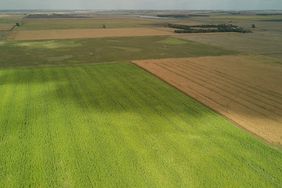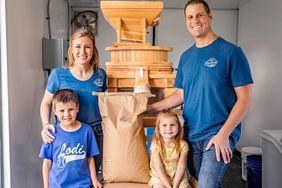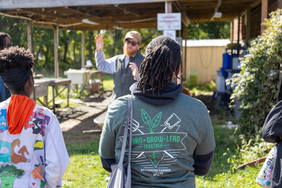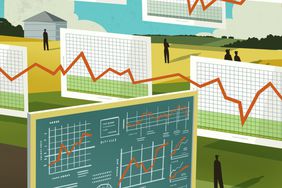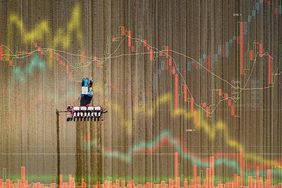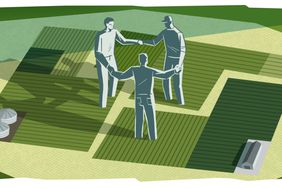:max_bytes(150000):strip_icc()/iStock-452638585-2000-5136ed2aa3f84212b5a12976114d2848.jpg)
The new coronavirus disease (COVID-19) is nixing many of those face-to-face meetings and handshakes that normally occur when a dealer and farmer make a seed, chemical, fertilizer, or other input transaction.
On the other hand, social distancing spurred by COVID-19 has given online ordering an opening for input buying and selling.
"We had a record pace for the first quarter that ended in March," says James Ferraro, vice president of Agrellus, a nationwide online marketplace that brings farmers and dealers together to buy and sell ag inputs.
"Product sales through the marketplace doubled from the first quarter of 2019 compared to the first quarter of 2020," he says.
COVID-19 has particularly perked interest.
"In general, requests (for online purchases) were up 60% in March overall (compared to March 2019)," he says. "But it accelerated when COVID-19 came along. In the period from March 10 until the end of March compared to the same period in 2019, we saw a 225% increase in buying requests from farmers, which is pretty dramatic."
Wider Selection, Competitive Prices
Launched in 2017, the Texas-based Agrellus marketplace offers access to seed, chemicals, fertilizer, irrigation parts, and even custom application online. Agrellus has farmer-members in 25 states, along with about 110 dealer-members with 400 locations throughout the U.S. in its member network.
Agrellus helps farmers access thousands of agricultural products within existing distribution and retail channels, Ferraro says. This channel-friendly solution enables local retailers to offer returns and product rebates while still offering high-value local services like agronomics, says Ferraro.
Meanwhile, farmers save time and money. "Rather than making seven phone calls and have three salesman who call on them, they can do it in minutes all online," Ferraro says.
Here's How It Works
A farmer creates a free online account and requests a specific product —whether at home by computer or in the field on a free smartphone app. During this time, the farmer provides information regarding quantities, date needed, delivery address, and payment method. This request goes to Agrellus dealer members serving that area.
Once received, dealers quote the product price or suggest a substitute that may be more price competitive. The farmer then compares quotes from the network of authorized dealers to choose the desired price and delivery quote.
The farmer can then accept the quote, pay, and have the product shipped or picked up. Payment methods include bank wire, credit card, dealer and manufacturer credit, cash, or check on delivery. Agrellus also offers credit lines to farmers through Agrellus Financial.
The dealer who quotes the product and gets the sale gets credit. Many multilocation dealers assign local stores or employees as subusers in their main Agrellus dealer account to respond to the quotes that come from Agrellus in their sales region, says Ferraro.
Shipment charges are included in the quoted price. Logistics are handled by the dealer's local stores, buying points, or warehouses, says Ferraro.
A unique point about Agrellus it that doesn't sell, hold, or store any products.
"Dealers may not have physical locations in farmers' regions, but they can source it for them," Ferraro says.
As an example, a Georgia farmer made a request to buy a product that a Texas retailer quoted, says Ferraro. Due to shipping costs, Agrellus thought there was no way a price for a product from Texas could be competitive with nearby network, but the Texas dealer had a buying point in Georgia that made the transaction work, he says.
Initially, it was hard to sell the concept to input dealers, says Ferraro. "They thought it would cannibalize them," he says. "Now, dealers are coming to us. Our dealer network has grown 300% in the first quarter of 2020 compared to the first quarter in 2019."
Doing online business with dealers also prevents awkward circumstances that can arise from face-to-face transactions.
"It gets farmers away from the conversation of "Well, I have to buy from this person because I'll see him at football games or church,'" says Ferraro. That's because farmers still do business locally but can obtain competitive prices with the Agrellus network, he says.
Significant Savings
Because the Agrellus network entails a wide product selection range and competition between dealers, significant savings can result as prices can widely vary between regions and even times of the year, says Ferraro.
For branded chemicals and even some generics, typical savings result between 15% and 30%, with some savings even approaching 40%.
Ferraro says the online process is transparent, with farmers knowing who the dealers are and the dealers knowing who the farmers are.
"There is no hiding behind a wall," he says. "If a dealer submits a quote and doesn't win it, all Agrellus dealers who quoted the product see what the winning price was. It works the other way, too. If you are a dealer with winning bids 100% of the time, you might be leaving money on the table."
No membership or annual subscription fee exists. Instead, Agrellus makes its money by charging the dealer a 1.5% to 5% transaction fee on a sale only after the payment is verified.
"It is a pure pay for performance model," he says.
How Agrellus Started
Two active farmers and a former agricultural retailer founded Agrellus, Ferraro says. Agrellus originated from an observation the founders had after frequently ordering of nonfarm products online. Coincidentally, they also spent hundreds of thousands on ag inputs every year, which spurred them to develop an online business where they thought farmers could order a wider selection agricultural inputs at better prices, he says.
"They said, 'I can't control commodity prices or the overall economy, but I can control input prices,' " says Ferraro.
